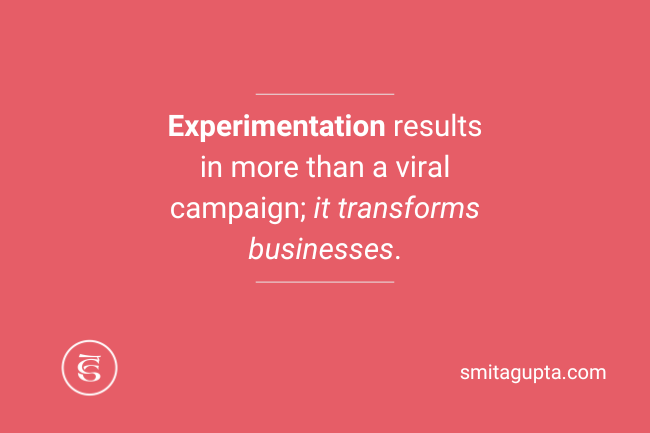How should a CMO balance what the organisation has always done— with marketing experimentation and innovation?
Marketing teams may be experimenting within a campaign – to get the right message, reach the right customers, and improving the results. But experimentation should go beyond the campaign to impact the marketing strategy, the approach to analytics, and the culture of experimentation company-wide- bringing product and sales during the planning stage itself.
First, data and analytics should be accessible with visibility across the full customer journey. Aligning marketing and sales metrics not only streamlines business goals, but demonstrates marketing effectiveness against the metric that matters most: revenue.
Secondly, experimentation projects should work across the company in a controlled and scalable way. The most impactful experimentation is likely to happen in the marketing, sales and product teams – groups working closely with customers and clients. Having standard experimentation processes in place supports innovation without endangering brand value, and gives greater structure to knowledge sharing across markets.
Finally, experimentation needs to be supported from the top and requires a cultural shift. This may be the biggest change from what has been done before, but true experimentation should be encouraged across the business.
As a marketing and growth advisor, I challenge my clients to experiment with what they are doing, but also how they are doing it.
One of our fintech client required an overhaul of the GTM strategy (what) and positioning, the customer journey, and the marketing management systems (how). The 12-18 month marketing plan we built to achieve £500m revenue over two years at an ROI of 3x, was relooking at ‘how they were going to market’: choosing marketing mix based on data, building propositions based on customer needs rather than product push and challenging the client to understand that what got them here wont take them to 4X growth.
Experimentation results in more than a jazzy product or brand campaign; it transforms businesses, and should be implemented company-wide.

How should you adapt your marketing strategy as your insights come in?
Here are some questions to ask about how to optimise your growth:
Do you know your customers?
You will have made some assumptions about your customers – who they are and their challenges – while building a campaign. Sales, conversations, and lost sales all tell you about the customer that is buying from you, the challenges faced by different groups and the friction in the customer journey. Having full visibility of the funnel enables teams across marketing, sales and product to understand customers and adapt the strategy accordingly.
Which channels and markets are performing best?
Marketing data should be looking at performance across channels and the company. It may be a case of tweaking the positioning, or perhaps prioritising other initiatives where your target audience is. If the results of experimentation are being shared between markets, it is easier to advance the overall strategy based on what is working well.
Is the experience unique for each visitor?
With the wealth of data you will be collecting, you should be able to personalise the experience for individual customers. Perhaps its recognising them by name, recommending a product based on a previous order, or wishing a personalised message based on their location. Marketing should experiment with other teams to create a unique experience that makes the brand stand out.
What are the best products to be promoting?
Use the data gathered to determine the best products to share with the best people. Rather than attempting to convert your whole funnel at once, content and promotions can be more specific.
What is working and what isn’t?
Data can tell you conclusively what is working and what isn’t within your marketing strategy and experimentation projects. You can adapt all sorts of areas to improve things that aren’t working, and ramp up the efforts that are.
The improvements to data collection and data reading enables marketers to change the strategy in real-time and continue experimenting to grow the company.
Ask these questions to make the most of your marketing strategy and convert your customers (or get in touch with us).
